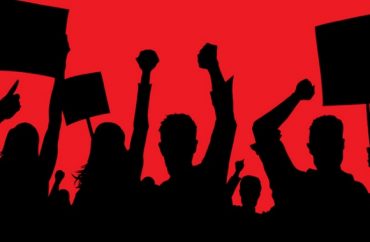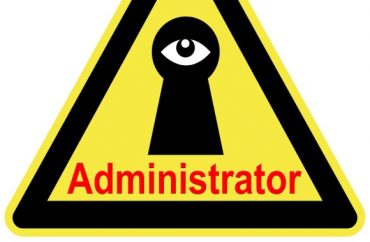
Professors offer possible solution too — tout the principles of ‘dignity culture’
In 2014, Bradley Campbell and Jason Manning, associate professors of sociology at Cal State Los Angeles and West Virginia University, respectively, published a scholarly article titled “Microaggression and Moral Cultures” that detailed the rise of a “victimhood culture.”
Sure enough, a paper that discussed microaggressions in what many perceived as a negative light was denounced as — wait for it — a microaggression.
Critics took umbrage to their “victimhood” terminology, with one reader calling their paper “tenuous and capricious” and that it “is itself a microaggression,” actually “closer to a real aggression.”
In 2015, the two sociologists filed a solicited op-ed to the online magazine TechCrunch titled “Microaggressions and the Moralistic Internet.” The editor they worked with initially praised the column, telling them it would run soon. A month later he told the two professors their column was spiked.
From what Campbell and Manning could best determine based on correspondence with the editor, “it sounds as if the staff members found our analysis morally offensive in some way.”
These two anecdotes are detailed in Campbell’s and Manning’s co-authored 2018 book “The Rise of Victimhood Culture.” The two sociologists have emerged as experts on the subject, maintaining a blog that is updated regularly on the subject as well as writing op-eds and giving interviews.
While the term “victimhood culture” was not coined by the two scholars, they write in their book that they have uniquely classified it as “a moral culture distinct from honor and dignity cultures.”
The two approach the topic with a dispassionate and scholarly tone in their nearly 300-page book, but it’s clear their take on the subject has riled feathers, with some peers arguing terms such as honor and dignity have positive connotations while victimhood does not.
“Our terminology is intended to help describe what is going on, not to praise or condemn it,” they write as a rebuttal.
Now available! https://t.co/cNwNOmFSru
— Bradley Campbell (@CampbellSocProf) March 12, 2018
In addition to updating their blog, “The Victimhood Report,” Professor Campbell in November published an op-ed in Quillette titled “The Free Speech Crisis on Campus Is Worse than People Think” that expounded on their theories.
“In honor cultures men want to appear formidable. A reputation for bravery, for being willing and capable of handling conflicts through violence, is important. … In dignity cultures, though, people have worth regardless of their reputations. Because an insult doesn’t take away your worth, your dignity, you can ignore others’ insults,” Campbell wrote.
“But the new culture of victimhood combines sensitivity to slight with appeal to authority. Those who embrace it see themselves as fighting oppression, and even minor offenses can be worthy of attention and action. Slights, insults, and sometimes even arguments or evidence might further victimize an oppressed group, and authorities must deal with them.”
In an email interview with The College Fix, Manning said the reaction to this trend has been mixed, and some on the Left are even wary.
“You can see many mainstream liberals expressing criticism of microaggression complaints, expansive definitions of trauma, the idea that words are violence, credulity in the face of hate crime hoaxes, and the like,” he said.
But most on the Left do not consider accepting victim status demeaning at all.
 “Being recognized as a victim conveys social status. One deserves special consideration and assistance. Those deemed ‘privileged’ are expected to ‘confess’ their moral stain and apologize for it. It is they who are demeaned, and this is treated as okay,” he said.
“Being recognized as a victim conveys social status. One deserves special consideration and assistance. Those deemed ‘privileged’ are expected to ‘confess’ their moral stain and apologize for it. It is they who are demeaned, and this is treated as okay,” he said.
Moreover, Manning said the Left has weaponized their self-perceived plight in order to force conservatives into bowing to their worldview.
“It is an increasingly easy way to punish adversaries and gain social status by signalling one’s own virtue. The growth of social media and proliferation of bureaucratic authorities contribute [to] this. So does training by educators and administrators that encourages people take offense and report incidents to authorities,” he told The Fix.
Faculty and administrators encourage this mentality and have done so for years.
“Some faculty see political activism as a major part of their occupation and identity. Some see activism and scholarship as one and the same, perhaps because they’re not clear on the distinction between facts and values and are under the impression that their moral and political preferences are matters of fact,” Manning said. “Though I might add that the ideological imbalance is greater among administrators than among faculty, and a lot of student indoctrination stems from the administration.”
The solution may lie in promoting a culture of dignity.
Manning points to “The Coddling of the American Mind” by Greg Lukianoff and Jonathan Haidt, published last September, as an effort “to convince people that both Cognitive Behavioral Therapy and ancient wisdom of Buddha, Jesus, the Stoic philosophers, and so forth all point [out] that focusing on and magnifying grievances isn’t good for one’s mental health.”
 The victimhood book expands on this concept: “Haidt argues that magnifying small offenses goes against much of the traditional advice from philosophy and religion … he points to statements from the Buddha–‘It is easy to see the faults of others, but difficult to see one’s own faults’– and Jesus–‘Why do you see the speck in your neighbor’s eye, but do not see the log in your own eye?’–that caution against obsessing over the minor faults of others.”
The victimhood book expands on this concept: “Haidt argues that magnifying small offenses goes against much of the traditional advice from philosophy and religion … he points to statements from the Buddha–‘It is easy to see the faults of others, but difficult to see one’s own faults’– and Jesus–‘Why do you see the speck in your neighbor’s eye, but do not see the log in your own eye?’–that caution against obsessing over the minor faults of others.”
In his interview with The Fix, Manning said “passing on such wisdom might help at the margins.”
“Recently, my coauthor Bradley has been arguing that it’s important to be explicit about the principles of dignity culture and why they are valuable. Things that might have [once] been matters of unspoken agreement need to be spelled out, because sometimes those unspoken things get forgotten.”
But that’s not really happening now, and millennials’ and Generation Z’s embrace of victimhood culture may have a grim outlook.
“There’s a common criticism along the lines of ‘wait until these kids get into the real world.’ But of course the ‘real world’ is coming to resemble campuses in some respects, as Google and other large corporations increasingly enforce the same kinds of speech codes and so forth,” Manning said.
 Meanwhile, the scholars point out in their book that the appeal to authority to handle perceived microaggressions is a big part of the picture.
Meanwhile, the scholars point out in their book that the appeal to authority to handle perceived microaggressions is a big part of the picture.
“Remember that in a victimhood culture, along with the sensitivity to slight goes a tendency to handle conflicts through appeals to third parties. … [F]or campus activists the focus is often on compelling authoritative action from administrators,” they wrote.
Calling microaggressions “aggressions,” and suggesting they are a pattern of systemic oppression, is a tool used to gain support and validation from authorities. And in the end, it can be likened to a form of social control, the sociologists argue.
Remember you’re dealing with grievances and conflicts, morality and partisanship, altruism and interdependence, socialization and culture, intimacy and loyalty, status and power. That’s the stuff of social life. It influences law and markets, and social movements to change them.
— Jason Manning (@SocialGeometer) December 21, 2018
“In sum, microaggression complainants collect and publicize accounts of minor intercollective offenses, making the case that they are part of a larger pattern of injustice and that those who suffer them are socially marginalized and deserving of sympathy,” the book states.
“The phenomenon is sociologically similar to other forms of social control that involve airing grievances to authorities or to the public as a whole, that actively manage social information in a campaign to convince others to intervene in some way, and that emphasize the dominance of the adversary and the victimization of the aggrieved.”
MORE: Being a ‘victim’ has become a badge of honor on campus, sociologists argue





Please join the conversation about our stories on Facebook, Twitter, Instagram, Reddit, MeWe, Rumble, Gab, Minds and Gettr.